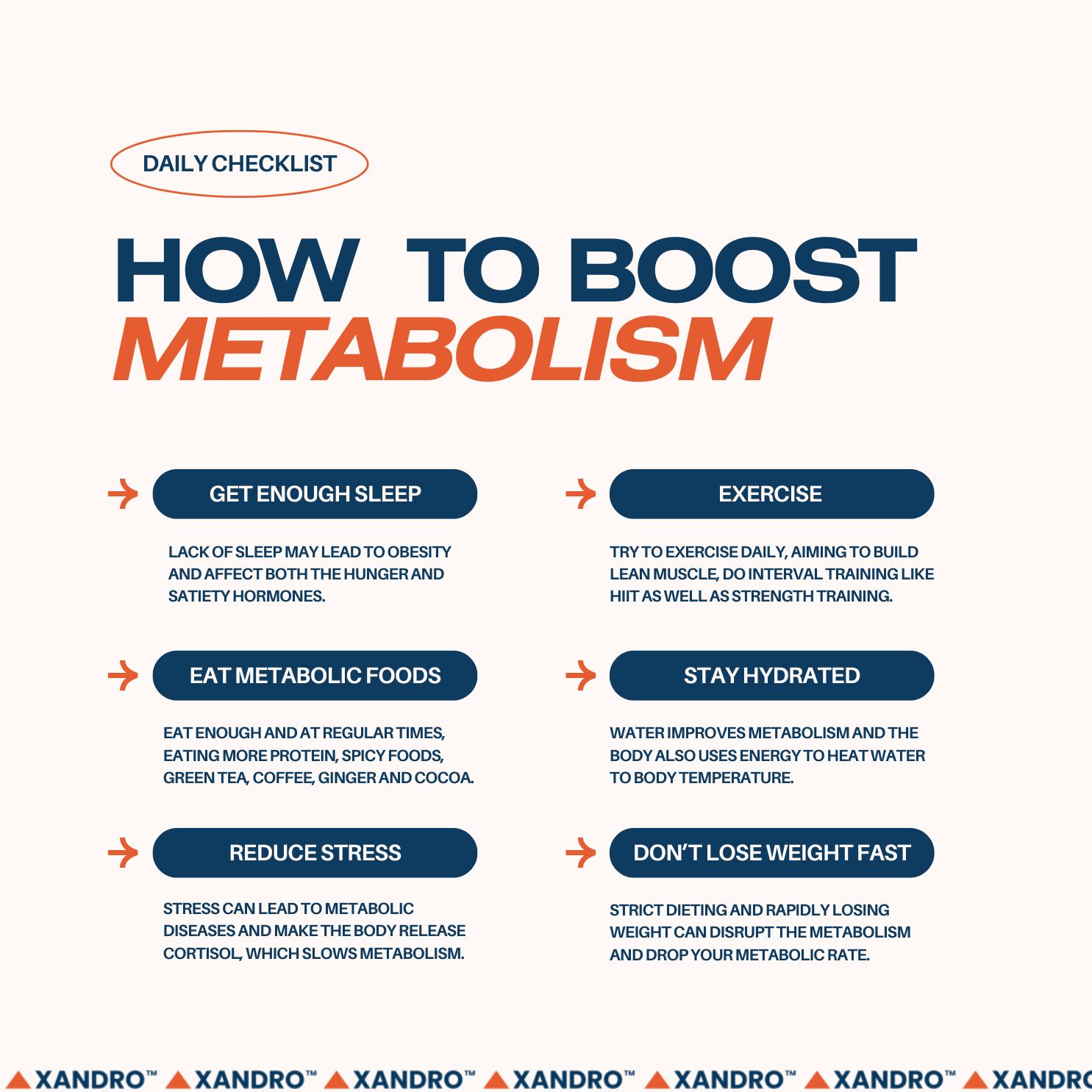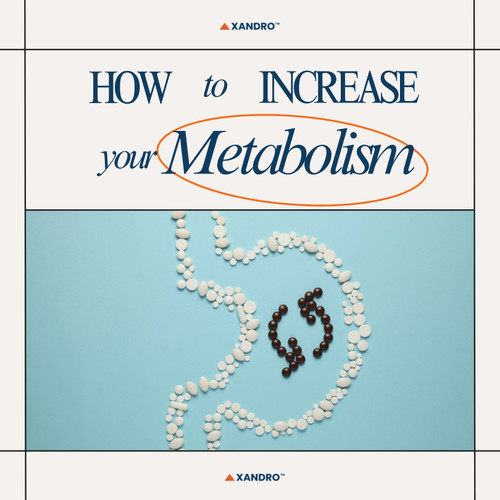Top Ways to Increase Your Metabolism
10th Aug 2024
How to Increase Metabolism
Weight loss and then weight management is difficult. It can be difficult to break bad habits and to form new ones, and then there are factors beyond your control that cause weight gain, such as certain diseases, thyroid problems and then the subsequent medication.
It’s not easy, but hopefully, through our blogs, we can provide you with a wealth of information that can go alongside your doctor’s advice and simply educate you in various health and nutritional areas.
This post will focus on metabolism, particularly how to increase metabolism.
Jump there now:
- What Is the Definition of Metabolism?
- Why Is My Metabolism Slow?
- How Can I Super Speed Up My Metabolism?
- What Foods Increase Metabolism and Fat Burn?
Your metabolism is a process in your body responsible for converting all the nutrients from the foods you eat into fuel. This fuel gives your body the energy it needs to function, including to move, breathe, digest foods, move blood around and repair damaged cells and tissue.
It’s often also used to describe one’s basal metabolic rate, which is essentially the number of calories you burn when you’re resting. If you have a higher metabolic rate, you burn more calories when you’re resting — sounds great, right? Just sit and burn calories.
But everyone’s body is different.
Are you frustrated with how the people around you seem to have a high metabolism?
There is a range of reasons why one can have a slow metabolism, such as your age, what you eat, your sex, weight and body size, body composition, whether or not you do physical activity, your health status as well as a side effect of any medications you’re taking.
Slow metabolism symptoms include:
- Fatigue
- Digestive issues
- Struggling to lose weight
- Easily gaining weight
- Dry skin
- Thinning hair
- Struggling to concentrate
- Mood swings
Fixing a slow metabolism starts with speaking with your doctor and getting a body checkup to see if you have any underlying conditions. This way, you can fix your nutritional levels and then create a personalised plan to manage any conditions you may have.
Looking at how to increase metabolism faster? This blog post is a quick-fire article on various ways to improve your metabolism.
- Get enough sleep: Lack of sleep is linked with higher chances of obesity, as well as negatively affecting the hunger hormone, ghrelin, and the satiety hormone, leptin.
- Exercise more and, in particular:
- Eat at regular times
- Eat enough and don’t skip meals
- Stay hydrated: This may boost metabolism by 24 to 30% due to the body heating the water to body temperature.
- Stand more and try walking every so often during the day and on breaks
- Try to reduce stress as much as possible
- Keep your gut microbiome in good shape
- Don’t lose weight too fast: Strict dieting and losing weight too fast can disrupt your metabolism and drop your metabolic rate significantly.

Further Reading: Spermidine, Metabolism and Weight Loss
So, we mentioned eating at regular times and eating enough, but what you eat is also incredibly important.
Foods that increase metabolism include:
- Foods high in protein, such as lean meat, fish, dairy, eggs, beans and legumes and nuts and seeds.
- Spicy food: Spicy foods, particularly peppers, contain a compound called capsaicin that may boost your metabolism, although this is when eating in high amounts, which may be too spicy for certain people.
- Green tea: May indirectly help your weight due to how it affects your gut microbiome, alongside the benefits of oolong tea below.
- Oolong tea: Alongside the green tea effects above, oolong tea may help change some fat into free fatty acids which may help increase fat burning when combined with exercise.
- Coffee: May trigger the release of neurotransmitters that help the body regulate the way it processes dat.
- Foods high in iron and selenium, such as meat, seafood, nuts and seeds, and legumes, for their effect on the thyroid
- Ginger: This may help with weight management and boosting metabolism.
- Cocoa: Cocoa and cacao contain flavonoids that may boost metabolism and reduce body weight, although more studies are needed.
- Seaweed: High in iodine, a mineral that thyroid hormones require for your thyroid to function properly, which helps regulate your metabolic rate.
Protein causes a large rise in something called TEF, or the thermal effect of food. It’s basically how food can temporarily increase your metabolism for a few hours after eating. Dietary protein needs about 20 to 30% of energy to be used to metabolise, meaning you’re burning more energy to digest it. This is compared to 5 to 10% for carbohydrates and 0 to 3% for fats. Adding more protein to your diet can also help prevent muscle loss and also reduce the drop in metabolism that often comes with weight loss.
End Note
You may also want to look into supplements that can help boost your metabolism (you can find some in our article about supplements for weight loss).
As always, it’s incredibly important to speak with your doctor to check whether you have any existing health conditions that are affecting your metabolism, first. You can also see a specialist to learn more, such as the Diabetes & Metabolism Centre at Singapore General Hospital.
You can also check out Xandro’s latest supplement, Lean XP, a fat-burning supplement that helps in your weight loss journey without needing caffeine, stimulants or steroids!
